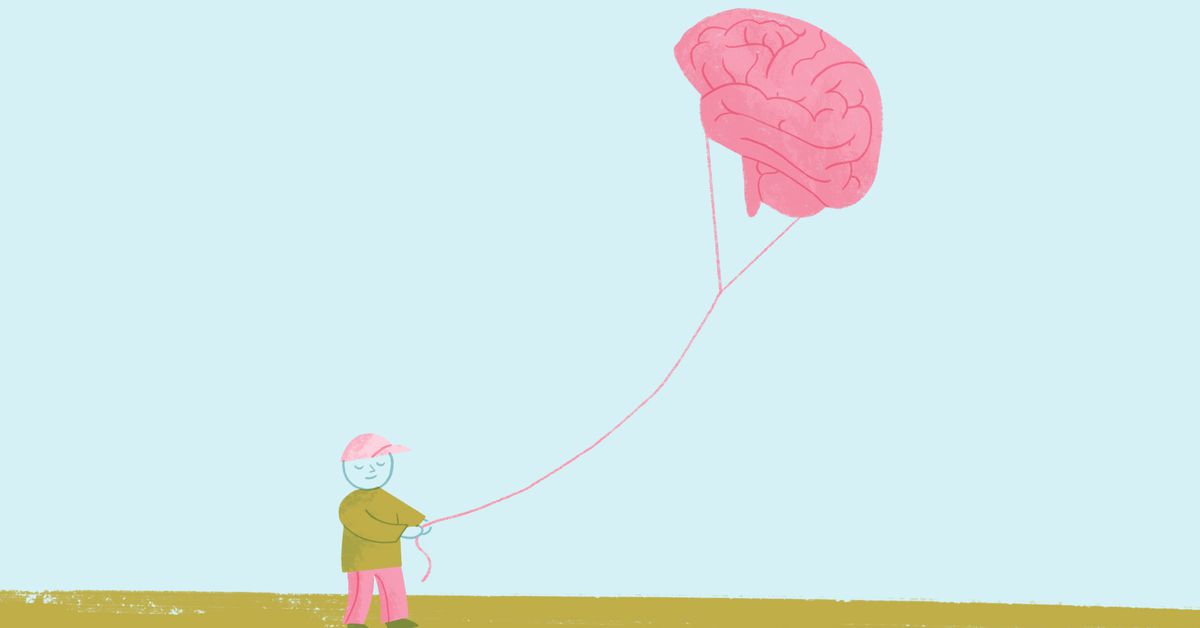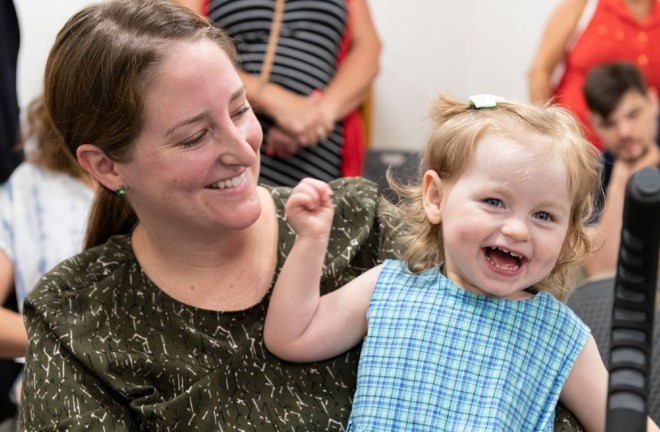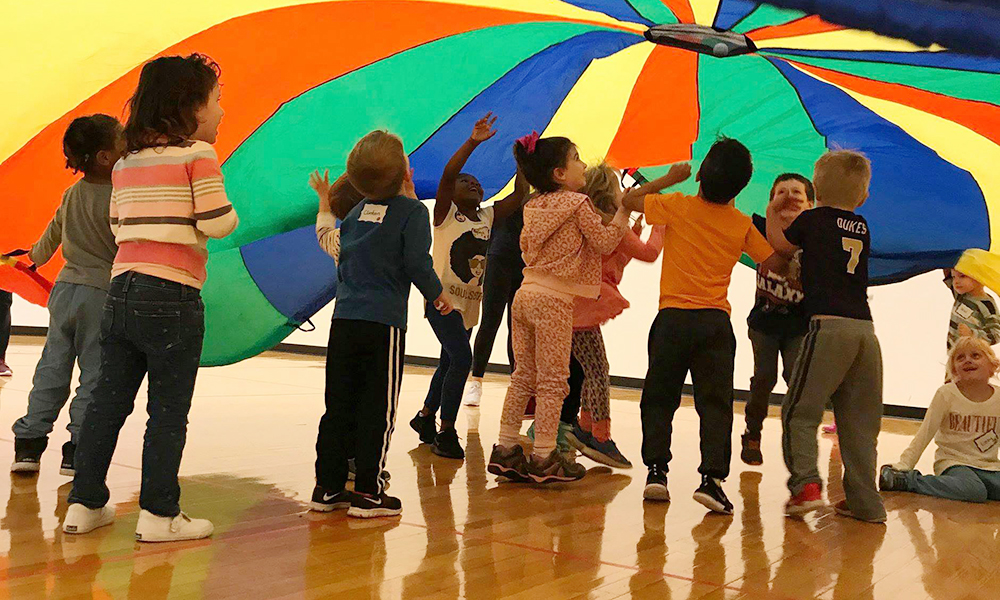How much sleep do children and teens need? How to raise healthy, happy kids

If you were writing a recipe to help children thrive physically and mentally, you’d spell it with a lot of ZZZs.
While experts have known for years that children do best when they get plenty of sleep, a new study from BYU published in the journal Sleep says too-little sleep contributes to lousy nutrition choices, which in turn plays a role in the obesity epidemic and its subsequent health problems.
Sleep is the No. 1 priority that study author Kara Duraccio believes should be on parents’ minds as they try to ensure a healthy present and future for their kids.
“Sleep literally intersects every aspect of our life — academic achievement, ability to pay attention in class, health. And not just weight-related health, but cognitive health, emotional health, social abilities like forming and maintaining friendships. … Whatever habits you want to develop to improve well-being, sleep is going to help promote the others,” she said.
But when busy lives mean something has to give, sleep is often given up. And nowhere is that more true than among adolescents who may be juggling homework, work, social and family lives and more.
The American Academy of Pediatrics reported in 2018 that three-fourths of high school students get less than the optimal eight to 10 hours of sleep a night. And younger children may need even more and get even less.
The new study led by Duraccio, a clinical and developmental psychology professor at Brigham Young University, found youths who get less than optimal sleep don’t necessarily eat more than those who are well-rested. But they consume foods more apt to provide a short burst of energy than sustained, healthful fuel.
Researchers said what they eat translates to as many as 4.5 pounds more sugar in a year, with fewer fruits and vegetables and more carbs and sugary drinks. The study, in which teens served as their own controls by spending 6.5 hours in bed for one week and 9.5 for another week, found that those teens with short sleep ate an extra 12 grams of sugar a day.
While public health and other officials have called pediatric obesity an epidemic — and lamented the fact that young people now sometimes show up with health problems related to obesity that used to be seen in much older groups, like diabetes and heart disease — Duraccio believes sleep’s a possible solution that isn’t discussed much.
“Maybe the reason that teens are gaining weight over time when they’re getting short sleep is because they’re gravitating towards food that might in the short term help meet their body’s needs, which we think is give them the energy that they need to get through the day, but in the long-term is increasing the risk of obesity and other cardiometabolic disease,” she said.
Those seeking prevention strategies or interventions to help youths maintain optimal weight should put “well-timed sleep at the forefront of their efforts,” Duraccio said. As it stands, it’s actually not often mentioned, she added.
Sleep’s not the only priority parents should focus on if they want to improve the health and well-being of their kids, experts told the Deseret News. A lot can be gained by focusing on five aspects of health:
- Sleep
- Nutrition
- Exercise
- Mindfulness
- Joy
Sleep deprived
What often gets shortchanged when there’s too little sleep are rapid eye movement and deep sleep stages, Duraccio said. And while researchers are still learning about sleep, they think those are crucial to processing and storing different kinds of memories, as well as helping the body rest and heal, from strengthening the immune system to fight off injuries and illness to repairing damage that has occurred during the day.
Duraccio said she recognizes the challenges teens and other youths face trying to get enough sleep, particularly with early school start times. But she believes teens and parents can prioritize changing sleep-related behaviors fairly simply.
First, beds should only be used for sleeping to help improve the mindset. Young people shouldn’t read or scroll online while in bed. Additionally, one’s natural sleep rhythm can be reset over time by going to bed 15 minutes earlier than normal for a week, then another 15 minutes the next week, until a bedtime’s reached that matches sleep needs with other obligations like getting ready for school.
:no_upscale()/cdn.vox-cdn.com/uploads/chorus_asset/file/23145839/byukidsthrive.jpg)
Food for thought — and action
Food is fuel for the body and the brain. And when the brain runs out of good fuel and the resources it needs to function at a high level, it starts to crash and burn, said Dr. Rebecca Jackson of Raleigh, North Carolina, a board-certified cognitive specialist who’s a vice president for Brain Balance, which offers brain development resources for young and old alike.
“If we want to feel and function well, we need to fuel our body well. One of the challenges I see as a parent is I would like for my kids to eat perfectly. … One of the things I focus on is trying to not make foods good or bad. And I have a hard time with that. I want to vilify highly (chips) and processed foods with artificial dyes. But I also don’t want my kids to be the kid that goes to a friend’s house and binges on junk food,” she said.
“We are made of what we eat quite literally, both in nutrients and the joy we get from gathering together and eating,” said Dr. Paul Wirkus, a pediatrician in Murray, Utah. “There’s nothing sadder than eating that isn’t mindful and joyful. But cover your bases with what you eat in order to feel good.”
Said Wirkus, past president of the Utah chapter of the American Academy of Pediatrics, “We should get a good wide range of food, lots made out of plants, proteins and complex carbohydrates that fuel us and shelter us from the dips in the day. And where possible eat together and have joyful conversations.”
Treats are OK, Jackson said, but only after the brain and body has been properly fueled with foods that are healthful. She recommends talking about foods and their different qualities so kids know the difference between a cupcake and what it does for the body and how it differs from a protein shake with spinach or an avocado’s healthy fat. Then they can make better choices: “I want that cupcake, but maybe I will have a protein shake first,” she said.
Exercise as brain fuel
It’s truth, not cliche that what’s good for the body is good for the brain, said Jackson, who notes that people tend to think of exercise as a concrete activity, like a 30-minute run or a 45-minute bike ride.
Exercise has enormous implications for not just physical, but mental health. “If you’re feeling down or sluggish, if you’re feeling unfocused, you have the power right there to impact that,” she said. “Use muscles to turn on your brain.”
Before her children, who are middle schoolers, sit down to do homework, she encourages them to do some physical activity.
It doesn’t have to be something as long or intense as 30 minutes of cardiovascular work, she said. Taking even something as simple as a few minutes running up and down the stairs to spike your heart rate and engage large muscle groups “fires enormous regions of your brain and increases blood flow and oxygenation that enhance focus and memory.”
Kids need to know that if they are feeling stuck, taking a walk can reengage them.
Jackson sees a difference in energy and mood after her kids exercise. Her kids do cross-country after school. “You pick them up after practice and they are talking over each other and they’ve got so much to say and they’re just fired up. Versus a day when they don’t have a sport after school and you pick them up and they’re tired and sluggish in the car and then they want to go to their room and close the door.”
Mindfulness
The American Psychological Association defines mindfulness as “a moment-to-moment awareness of one’s experiences without judgment.” Being in the moment has increasingly been shown by research to offer some protection from anxiety and other types of stress, as well as help with problem-solving, among other benefits.
“Teens specifically tend to not be in the moment and tend to be either stressing out about their future or ruminating about the conversation they just had with their friend,” said Duraccio. When they stay in the moment, experts say they’re better at listening in class, being present with friends and nurturing relationships. Their personal resilience benefits, too.
Accountability is an important part of the concept, according to Fran Walfish, a Beverly Hills family and relationship psychotherapist and author of “The Self-Aware Parent.” She said adults and children alike “must become self-aware moment-to-moment and own up to their actions and behaviors in order for truth-telling to be their norm.”
Mindfulness and being self-aware — concepts that are related but not the same — help people live truthfully and express their feelings to others, which boosts honest communication and helps relationships. Walfish notes that kindness and curiosity are companion traits.
“We cannot shield ourselves from hurdles,” she said. “The best we can do is give ourselves coping skills to deal with all that will come our way.”
Research shows being mindful helps people meet challenges as they come up, but not stress about what was or what might be.
While the world often seems to celebrate multitasking, single-task focusing “can be so much more efficient” than diluting resources in different directions, Jackson said. But it requires being mindful and really paying attention to what you’re doing or thinking or seeing or hearing.
Studies show mindfulness makes people more efficient, less stressed, more in touch with their emotions and their surroundings, among other benefits. It boosts productivity and well-being.
Joy
Joy has to be “choice-driven,” according to licensed Utah therapist Jenny How, who has degrees in psychology and child and family studies. “We have to allow ourselves to feel negative emotions in order to recognize and actively choose joy,” she said.
“It may seem that joy implies a lack of negative emotions, but joy is the ability to feel it all and see joy as an active option.”
Jackson likes using the concept of exercising a muscle to talk about joy. The muscles we exercise get stronger and that applies to joy. “Thoughts and feelings fire in our brain the same way as an action,” she said, “so if I want my biceps to get stronger, maybe I’ll do more pushups or biceps curls. If I want my joyfulness, my mindfulness or positivity to take over more, I need to do more of that, creating patterns and habits.”
She said parents can set an example, making certain their children see them enjoying things and minimizing the habit of complaining.
“When I think about getting together with a girlfriend for dinner, I’ve watched myself over the years gravitate away from friends that constantly complain. It’s human nature to match others’ tone.” So she tries to surround herself with people who focus on the good, though that doesn’t mean one can’t acknowledge a sad or frustrating day. “The point is to not stay there,” she said, but instead pay attention to positives and happy events, too.
Here, too, Jackson mentions nutrition, sleep, exercise and mindfulness as tools that overall boost well-being. It’s easier to feel and express joy when you feel good .
Studies show that joy promotes a healthier lifestyle, bolsters the immune system, helps with pain and provides longevity. Teaching a child gratitude, by the way, has been shown to increase that child’s joy. A German study published in the journal Nature Communications found a neural link between generosity and happiness.







